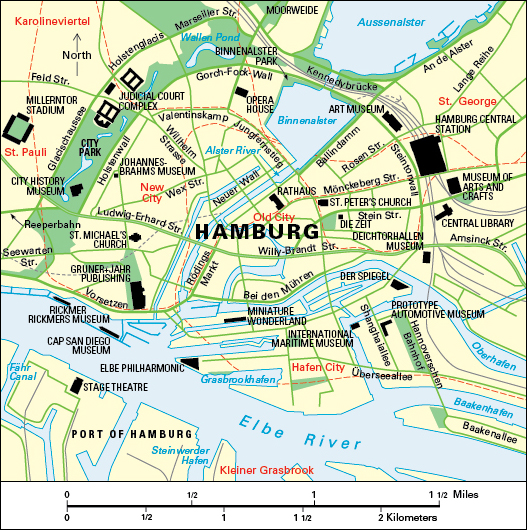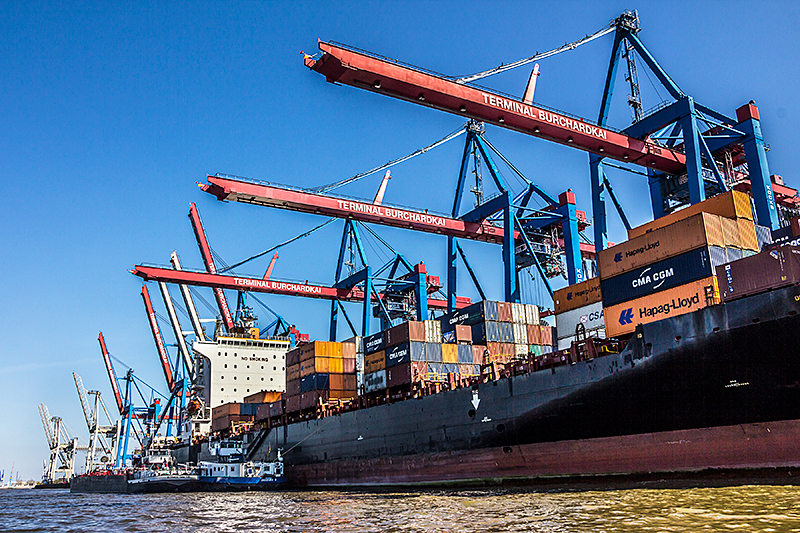Hamburg (pop. 1,706,696) is Germany’s second largest city and its most important commercial center. It is one of the largest seaports on the European continent.

Hamburg lies on the Elbe River, about 68 miles (110 kilometers) from the river’s mouth on the North Sea. The Alster River flows through Hamburg and forms two large lakes in the city. These lakes are called the Binnenalster and the Aussenalster. Many narrow canals crisscross the city.
Hamburg was one of the most heavily bombed German cities during World War II (1939-1945). Incendiary bombs caused huge fires. Large parts of the city’s port and commercial areas were wiped out and many old churches and fine homes were badly damaged or destroyed. But the port and commercial areas have been rebuilt since the war.
The Rathaus (town hall), the new opera house, and many modern buildings give Hamburg an attractive appearance. The city is a center of political and cultural activities. The Hagenbeck zoo, the University of Hamburg (founded in 1919), and numerous museums are there. The city’s cultural and musical events attract many tourists.
Hamburg is home to a number of German businesses and international corporations. The city is one of the leading German media centers. Such national publications as the news magazine Der Spiegel and the newspaper Die Zeit are published in Hamburg.
Hamburg’s port, which stretches along the Elbe River, is the center of many of the city’s economic activities, including foreign and inland shipping. Hamburg is also one of Germany’s leading railroad centers. Many of Germany’s chief industrial products—such as automobiles, chemicals, electronic goods, and machinery—are exported from Hamburg. The city’s main imports include coffee, fruit, paper, and tobacco. Important industries in Hamburg include aircraft manufacturing, food production, ironworks, medical engineering, shipbuilding, and steelworks.

In the 1200’s, Hamburg was a leading member of the Hanseatic League, a confederation of North German cities. In the late 1800’s and early 1900’s, it was a state in the German Empire and the Weimar Republic.
Hamburg State is a land (state) in Germany and is represented in the national parliament. Hamburg State has its own constitution, passed in 1952, and a Bürgerschaft (parliament). The people elect the 120 Bürgerschaft members to four-year terms. Bürgerschaft members choose a 10-member senate to administer the laws. The Erster Bürgermeister (chief official) heads the senate. Hamburg State is divided into seven administrative districts.
